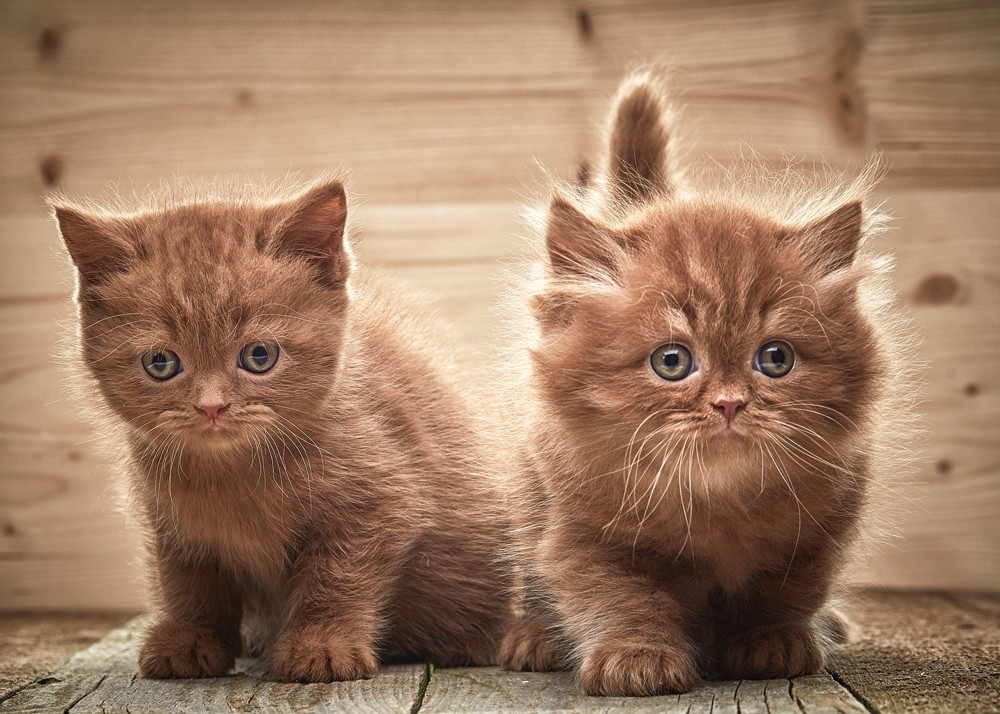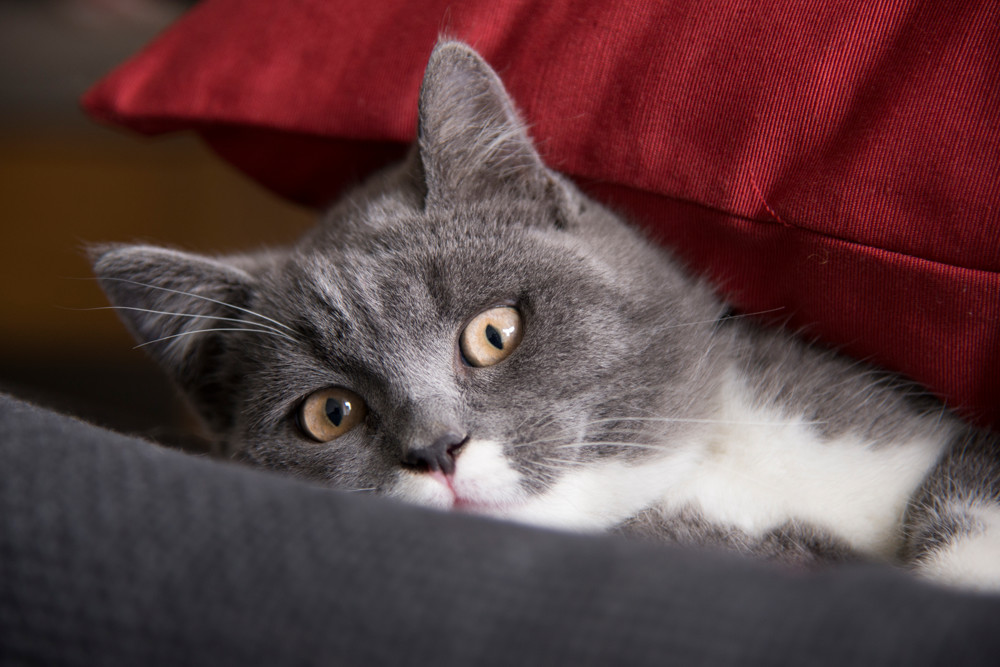Cat Clinic of Iowa City
Kitten Care from Cat Clinic of Iowa City
Taking care of a new kitten can be tough. Read this helpful guide to help you through caring for your new furry friend.
Educational Care Guides
Make caring for your cat easy!
Congratulations!
Having a new kitten in your home can be a rewarding experience. Cats are wonderful companions and enrich our lives and improve our health and emotional well-being. Cats and kittens are usually seen as “easy keepers” and it is true that they can be left on their own for longer than some other pets. However, this does not mean that they are completely self-sufficient. They need well-balanced meals, medical and dental care, clean kitty-friendly environments and companionship.
This overview is a brief guide to caring for your new kitten. If you have further or more specific questions, please call us.
Nutritional Care:
First and foremost: no human food! Especially not milk. This can give your kitten severe diarrhea. Kittens that are between the ages of 4-6 weeks need to have food available every two to three hours. Dry food may be used as a supplement, but a premium canned kitten formula is best. If you have a kitten this young, please discuss with us additional nutritional supplements and special-needs care.
Kittens between 6-14 weeks should have food offered three to four times daily. They can have a primary diet of dry or canned premium kitten food. Amounts of the diet do not need to be limited. Younger kittens should have food available for an hour at a time while 12-14 week old kittens should only have it available for ½ hour per feeding. Kittens 14 weeks and older only need food available twice daily for 15 minutes.
After your kitten is spayed or neutered, (around 5-6 months of age) the food should be adjusted to ½ cup or one 6 ounce can per day. At 6 months to 1 year of age, spend 2 weeks gradually switching from the kitten food to adult food.

Medical and Dental Care
Kittens, just like human babies, have weak immune systems. They receive a small amount of immunity from their mother, but not enough to protect them for long. This is why they need multiple inoculations or vaccines. The vaccine we use to protect them against the most common and contagious viruses is called the “distemper combination.” Note: These viruses are so contagious that we may accidentally bring them into our cats on our clothes or hands.

Oral Care
Oral care is just as important as vaccines and other medical care. Getting your kitten used to daily tooth brushing is the best way to prevent many dental problems. Using either a soft child’s toothbrush or a washcloth wrapped around your finger, run it under warm water to soften it. You may use a small amount (1/2 pea size) of cat toothpaste to help your kitten adjust to the brushing. Do not use human toothpaste! (Fluoride is toxic in much smaller amounts for cats than for us – and they do not spit out toothpaste like we do). Set your kitten on your lap, and gently push up one side of the lips and insert the brush and scrub in a circular motion 2-3 times. Rinse the brush and repeat on the opposite side. The key areas to hit are all the upper teeth on the sides of the mouth. You do not have to brush the lower teeth or the insides. Brushing is most effective if done once daily.
Environmental Care
A kitty friendly environment means having areas where your kitten can safely rough-house and play. Toxic plants need to be placed where the kitten can’t get to them now or when he/she becomes an adult. Household chemicals need to be in latching closets that your kitten cannot open.
The most important part of a cat friendly environment is easily accessible and very clean litter boxes. We recommend reducing the kitten’s free access to only a room or two when you are not “actively watching” your kitten for the first several weeks. This is to help reduce accidents as kittens have much less bladder and bowl control than adults do. If your kitten will have free access to multiple areas, you must have multiple boxes. Boxes should be placed in quiet areas where there are no appliances or anything else that may start suddenly and startle your kitten. Litter boxes for kittens should not stand higher than 2 inches. He/she should be able to step into the litter pan easily. Each litter box should be scooped free of urine and stool daily. The litter should be thrown out and the box scrubbed and rinsed thoroughly each week. The boxes themselves should be changed out for new boxes every 6 months to 1 year. For each cat in your house, you should have at least one litter box.
These first few weeks may be difficult, but it is important to know that in the mind of your kitten, he/she has a choice of using the litter box or somewhere else. If your kitten does not like the location, size or cleanliness of the box, the kitten will intentionally use another area. If your keep the litter box clean and convenient, yours will prefer the boxes.
Companionship
This is the real reward. Playtime not only establishes good exercise habits, it also helps your kitten bond to you, teaches limits, and keeps him/her out of trouble. Here are some fun ideas:
Interactive toys
Two favorites are KittyTease ™ and the ever-popular laser light. Get creative with play, keep in mind your cat’s natural predatory instincts as you play, encourage him/her to stalk, stare, and pounce to play.
Kitten Fishin’
Attach a long string to a favorite toy and get your kitten’s attention by dragging it in front of him/her. Once your kitten is interested toss the toy half way across the room, but keep hold of the end of the string. Slowly pull or “reel in” your kitten. (Sometimes this game can lead to the kitten learning to play fetch.)
Teach your kitten a trick or two!
Start with a kibble of food in front of his/her nose. If your kitten sniffs and is interested, bring the morsel over the nose towards the back of the head, and say “sit.” When he/she sits to sniff for it, give him/her the food and say “good sit!” Repeating tricks many times is the key to teaching cats.
Grooming is important to both short- and long-haired cats. Begin grooming shortly after your bring your kitten home, so that your kitten views it as a positive experience. Grooming gives you the best opportunity to build strong bonds during times when your kitten is tired and wants to cuddle.
Socializing your kitten with unfamiliar people who are quiet will teach your kitten to accept strangers instead of being fearful or aggressive. Despite their independent natures, kittens need socialization daily and the first few months are critical in healthy emotional development.
If you have questions or concerns about your kitten, please call us and speak with a staff member.
